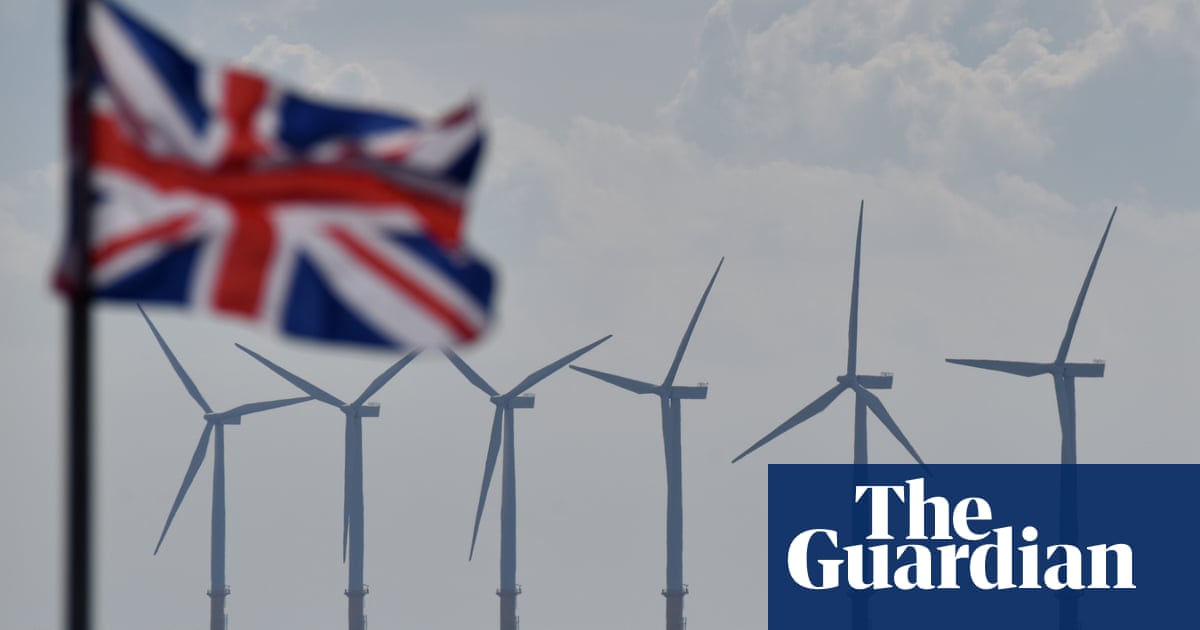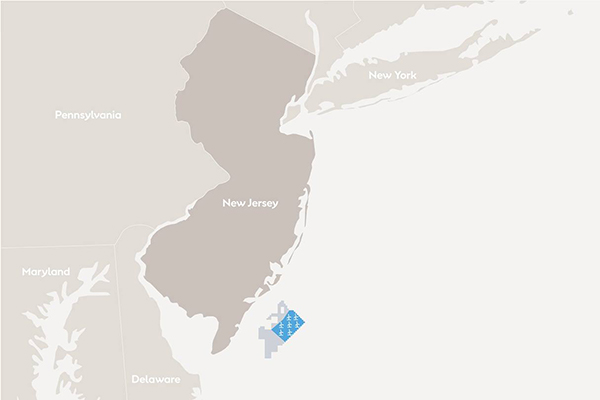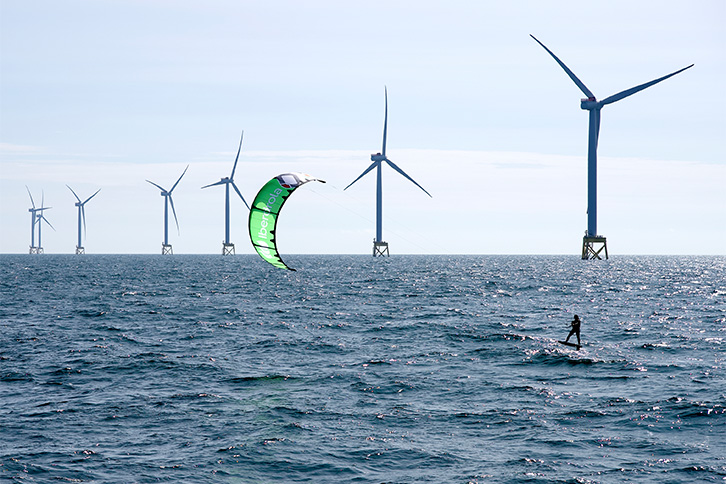OVERKILL
$100 Site Donor 2021
While there have been many models showing massive renewable growth that have been predecated on a perpetual decline in the cost of wind and solar, reality, thanks to inflation and rising interest rates, has had other plans. Probably the most affected industry is that for offshore wind, where skyrocketing contract price demands by developers has stalled growth. PPA's issued by governments and utilities are not sufficient for developers, who are demanding prices similar to that received by Vogtle. This is problematic because while Vogtle was a white elephant, it will produce reliable, round-the-clock electricity at 93% CF for 60-80 years, while a PPA for offshore wind provides sporadic, intermittent electricity at ~40% CF for ~20 years. Clearly, not much of a deal.

 www.theguardian.com
Renewable-energy developers were required to submit sealed bids in the auction in the first half of August, before officials ranked the most competitive proposals over the second half of the month. Only the projects offering the lowest cost to energy-bill payers secure contracts.
www.theguardian.com
Renewable-energy developers were required to submit sealed bids in the auction in the first half of August, before officials ranked the most competitive proposals over the second half of the month. Only the projects offering the lowest cost to energy-bill payers secure contracts.
The auction uses a mechanism known as contracts for difference, which guarantee consumers will pay a fixed price for the energy generated by the bidder. When wholesale prices are lower, subsidies added to customer bills top up the difference; when wholesale prices are higher, developers backpay the difference.
In recent decades, the price of offshore wind power has fallen steeply. For this year’s auction, the government set a maximum price of £44 a MW hour, a similar level to the previous round.
But the maximum seems to have been too low to attract bids. Offshore wind developers face soaring construction costs, owing to rising inflation and higher borrowing costs.
This summer such inflationary pressures caused work to stop on a large-scale offshore windfarm off the Norfolk coast. The Swedish energy firm Vattenfall said it would cease working on the multibillion-pound Norfolk Boreas windfarm, designed to power the equivalent of 1.5m British homes, because its costs had increased by more than 40%, so it was no longer profitable.

 commonwealthmagazine.org
AVANGRID and the state's three major utilities on Monday agreed to terminate a power purchase agreement they signed just last year, with the offshore wind developer agreeing to pay a total of $48 million to put the contract for Commonwealth Wind behind it.
commonwealthmagazine.org
AVANGRID and the state's three major utilities on Monday agreed to terminate a power purchase agreement they signed just last year, with the offshore wind developer agreeing to pay a total of $48 million to put the contract for Commonwealth Wind behind it.
The $48 million termination payment will be paid in three installments to the utilities — $25,900,800 to Eversource, $21,619,200 to National Grid, and $480,000 to Unitil – and the money will be reimbursed to ratepayers, according to filings with the Department of Public Utilities, which approved the power purchase agreement at the end of last year and must now approve the termination agreement.
Shell and Ocean Winds North America, the developers behind SouthCoast Wind, are expected to reach a similar agreement with the utilities, but their termination payment is expected to be higher — in the $60 million range.

 www.bloomberg.com
www.bloomberg.com

 www.utilitydive.com
www.utilitydive.com

 www.wsj.com
www.wsj.com
This is all on the heels of big problems at Siemens Gamesa, whose wind turbine division is plagued by quality control issues:
 www.rtoinsider.com
www.rtoinsider.com
/cloudfront-us-east-2.images.arcpublishing.com/reuters/NIDEQ3S4BVJLBJ4YABMYITUHNA.jpg)
 www.reuters.com
www.reuters.com

Blow to Rishi Sunak as offshore wind auction appears to have zero bidders
Government’s goals of reaching 50GW of offshore wind by 2030 and reducing energy bills may be at risk
The auction uses a mechanism known as contracts for difference, which guarantee consumers will pay a fixed price for the energy generated by the bidder. When wholesale prices are lower, subsidies added to customer bills top up the difference; when wholesale prices are higher, developers backpay the difference.
In recent decades, the price of offshore wind power has fallen steeply. For this year’s auction, the government set a maximum price of £44 a MW hour, a similar level to the previous round.
But the maximum seems to have been too low to attract bids. Offshore wind developers face soaring construction costs, owing to rising inflation and higher borrowing costs.
This summer such inflationary pressures caused work to stop on a large-scale offshore windfarm off the Norfolk coast. The Swedish energy firm Vattenfall said it would cease working on the multibillion-pound Norfolk Boreas windfarm, designed to power the equivalent of 1.5m British homes, because its costs had increased by more than 40%, so it was no longer profitable.
Avangrid agrees to pay $48m to terminate offshore wind deal
AVANGRID AND THE STATE'S three major utilities on Monday agreed to terminate a power purchase agreement they signed just last year, with the offshore wind
The $48 million termination payment will be paid in three installments to the utilities — $25,900,800 to Eversource, $21,619,200 to National Grid, and $480,000 to Unitil – and the money will be reimbursed to ratepayers, according to filings with the Department of Public Utilities, which approved the power purchase agreement at the end of last year and must now approve the termination agreement.
Shell and Ocean Winds North America, the developers behind SouthCoast Wind, are expected to reach a similar agreement with the utilities, but their termination payment is expected to be higher — in the $60 million range.

Orsted Ready to Abandon Wind Projects as It Calls on US for Help
Orsted A/S said it’s prepared to walk away from US projects unless the White House guarantees more support, highlighting the myriad challenges facing wind-energy developers in the country.

As Ørsted, others seek up to 71% hike in clean energy contract prices, NYSERDA warns of rate increases
Proposals to raise offshore wind and onshore renewable energy contract prices in New York would push residential rates up by 4% a month, according to a state agency.
- Proposals to increase prices in existing offshore wind and onshore renewable energy contracts in New York could increase residential electric rates by 2.5% and 1.5%, respectively, or a combined $4.67 a month, according to the New York State Energy Research and Development Authority.
- However, failing to update the prices for wind and solar contracts could kill the projects, leading to delays in meeting state clean energy targets, increasing carbon dioxide emissions, and potentially higher prices for future contracts, the agency said in a Monday filing at the New York Public Service Commission.
- Reflecting drivers behind the proposals, Ørsted, one of the petitioners, on Tuesday said it faces about $2.35 billion in impairments on its U.S. offshore wind portfolio related to supply chain challenges, the possible failure to be eligible for extra federal investment tax credits and higher interest rates.

America’s Wind-Farm Revolution Is Broken
Even with generous green subsidies, offshore wind projects are being called off as developers struggle to make a profit.
This is all on the heels of big problems at Siemens Gamesa, whose wind turbine division is plagued by quality control issues:
Siemens Gamesa Quality Control Problems Growing Worse
Siemens Gamesa's quality-control problems are not fully understood and likely will cost more than a billion euros to fix, the company said.
/cloudfront-us-east-2.images.arcpublishing.com/reuters/NIDEQ3S4BVJLBJ4YABMYITUHNA.jpg)
What are the issues with Siemens Gamesa's wind turbines?
Shares in Siemens Energy fell on Monday after the company quantified deeper than expected problems at its struggling wind turbine division that were first unveiled in June, saying the issues triggered a 2.2 billion euro ($2.42 billion) charge.



